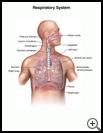
Allergic Reaction, Severe, Discharge Information
What is a severe allergic reaction?
An allergic reaction is your body’s reaction to a substance that is normally harmless. A substance that triggers your allergy is called an allergen. Allergens can include foods, insect stings or bites, medicines, chemicals, pollen, dust, pet dander, smoke, or other things in your environment.
Symptoms of an allergic reaction usually start within minutes to several hours after contact with the allergen. Allergic reactions can be mild to severe. A severe allergic reaction can be life threatening. You may have severe swelling of your lips, tongue, throat, or eyelids; itching; skin rash (such as hives or blisters); or trouble breathing. Your blood vessels may leak fluid into the area around them. This can make your blood pressure drop suddenly and cause you to go into shock. The medical term for a severe allergic reaction is anaphylaxis.
How can I take care of myself when I go home?
How long it takes to get better depends on the cause of your severe allergic reaction, your treatment, how well you recover, your overall health, and any complications you may have.
Management
- Your provider will give you a list of your medicines when you leave the hospital.
- Know your medicines. Know what they look like, how much you should take each time, how often you should take them, and why you take each one.
- Take your medicines exactly as your provider tells you to.
- Carry a list of your medicines in your wallet or purse. Include any nonprescription medicines and supplements on the list.
- Talk to your provider before you use any other medicines, including nonprescription medicines.
- Follow the treatment plan your healthcare provider prescribes.
- Your provider may prescribe medicine to:
- Relax your airways
- Reduce swelling in your airways
- Reduce your body’s response to the allergen
- Your provider may recommend other types of therapy to help relieve pain, other symptoms, or side effects of treatment.
- Ask your healthcare provider about the causes of your allergy and what to do when you have an allergic reaction. Ask your provider about carrying an injection kit of epinephrine, or other medicine to treat your allergic reaction. You can use it to treat yourself immediately if you have a severe allergic reaction.
- Ask your healthcare provider if there are foods, medicines, or other triggers you should avoid.
- Carry an ID card or medical alert jewelry that says you have a severe allergy, in case of an emergency.
- It's good for your family to know about your allergy. Make sure your family members know what to do if you have a severe allergic reaction.
- Take care of your health. Try to get at least 7 to 9 hours of sleep each night. Eat a healthy diet and try to keep a healthy weight. If you smoke, try to quit. If you want to drink alcohol, ask your healthcare provider how much is safe for you to drink. Learn ways to manage stress. Exercise according to your healthcare provider's instructions.
Appointments
- Follow your provider's instructions for follow-up appointments.
- Keep appointments for any testing you may need.
Talk with your provider about any questions or concerns you have.
Call emergency medical services or 911 if you have new or worsening:
- Trouble breathing
- Drooling or trouble swallowing
- Fainting
- Breathing does not get easier with medicine
Do not drive yourself if you have any of these symptoms.
Call your healthcare provider if you have new or worsening:
- Skin rash (such as hives)
- Itching
- Swelling of the lips, mouth, throat, or eyelids
- Lightheadedness
- Coughing with chest tightness
- Symptoms that happen more often or are worse than normal
Last modified: 2015-04-15
Last reviewed: 2016-01-26

